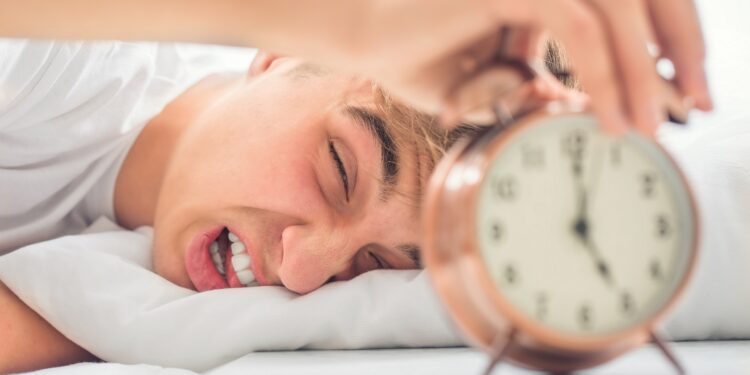How sleep affects the Psyche of young people
Sleep problems in teenagers with a greater likelihood of poor mental health in later life, which may contribute to the development of depression.

In the case of a joint study between the University of Reading, Goldsmiths, University of London and Flinders University, it was found that poor sleep increases the risk for depression in Teenagers massively. The results were published in the English journal “Journal of Child Psychology and Psychiatry”.
Data 4,790 teenagers were evaluated
Advertisements
For the study, the researchers analyzed data about the sleep quality of 4,790 Participants. It occurred to me that those who have experienced Depression, reported both poor sleep quality and low sleep duration. A Teenager who suffered from Anxiety, reported only about poor sleep quality, compared with the Participants who developed neither Fears or Depression.
Connection between sleep and mental health
“This latest research is further evidence that there is a significant connection between sleep and mental health in teenagers. This study highlights that those young people who have suffered from depression and anxiety, have slept in their youth overwhelmingly bad,“ said Dr. Faith Orchard, University of Reading, in a press release.
Teens with Depression went to sleep every night, later
Advertisements
Particularly striking is the difference in the average amount of Sleep between the healthy Participants and to Depression sufferers young people. Participants with Depression, every night slept about 30 minutes later, explained Dr. Orchard. There were some participants who reported an enormously poorer sleep quality and quantity. The results make clear that sleep must be much more taken into account, in order to improve the well-being of teenagers.
Differences in sleep behavior
The researchers found that the control group of the Teenagers slept on average about eight hours of sleep per night, if the young people had to be to school the next day. On the weekend, this Teenager slept an average of slightly more than nine and a half hours. A Teenager, in which depression was diagnosed, slept in a week, only seven and a half hours and a little more than nine hours on the weekends. The depression group slept an average of 272 minutes, or three and a half hours less per week.
There were limitations?
Advertisements
The evaluated data are based on the Participants self-reported information, therefore, they are less accurate, however, the fact of self-reported poorer sleep quality and quantity is nevertheless significant, said the researchers.
Treatment of sleep problems improves the well-being
While poorer sleeping habits are associated with poorer mental health, you can also see how the treatment of sleep problems in young people with depression and anxiety have a big impact on your well-being may have, adds the Team.
What problems do in their sleep?
“Good sleep hygiene is important, and if you are worried about your own well-being or that of your child, we strongly recommend you to contact your doctor, but any short-term negative impact on sleep is not a reason for concern,” says Dr. Orchard. (as)
